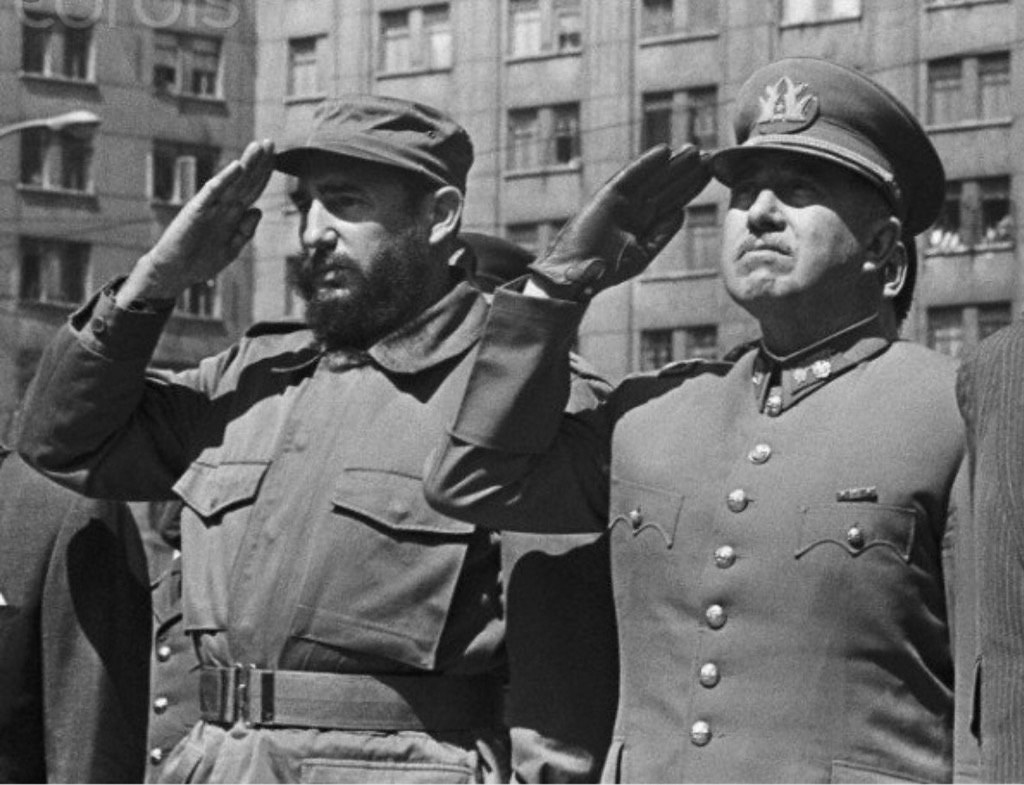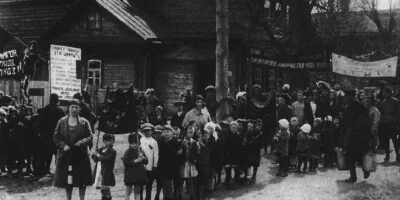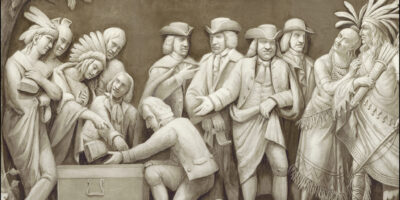The Pinochet Slur Against Free Market Scholars
Why does untruthful scholarship so often take root, and even become a “consensus” interpretation despite its factual deficiencies? It’s a question we find ourselves confronting with alarming regularity these days.
The answer appears to derive foremost from a breakdown in the quality-control mechanisms of peer review, and secondarily from the ideological yearnings of the hyper-politicized academy. If scholars fail to scrutinize a suspect claim because they agree with its political implications, deception ceases to be a cause for disapprobation and quickly becomes a tactic for increasing one’s citation counts.
The Pinochet Obsession
As a recent example, I turn once again to Nancy MacLean’s 2017 book Democracy in Chains, although in this case it pertains to a claim that others have taken the lead in investigating. For many years, the activist Left has sought to discredit economists of the free market persuasion by linking them to autocratic regimes and especially that of Augusto Pinochet, who ruled Chile from 1973 to 1990. This recurring charge is often disingenuously offered by persons who are unwilling to similarly scrutinize academic collaboration with far worse tyrannical regimes on the Far Left. Pinochet is nonetheless a particularly strong demonic obsession in the ever-expanding quest to exorcise academia’s favorite phantasm, “neoliberalism,” from the global economy.
Enter MacLean, whose many attacks upon the late Nobel laureate economist James M. Buchanan include the bombastic charge that he personally supervised and designed the Pinochet regime’s antidemocratic revisions to the Chilean constitution. By implication, Buchanan therefore shares in the collective guilt for Pinochet’s atrocities.
MacLean likens her account to better-known controversies surrounding F.A. Hayek and Milton Friedman, who did in fact meet with Pinochet to urge market liberalization upon him. Buchanan’s unseemly constitutional collaboration, however, is almost wholly imagined.
That much is readily apparent thanks to the careful scrutiny of historical documents found in a pair of articles that came out over the last year by economists Andrew Farrant and Vlad Tarko.
The first article, written jointly by Farrant and Tarko, investigates Buchanan’s visit to Chile as part of the 1981 meeting of the Mont Pelerin Society, where he allegedly offered intellectual support to the regime through his lectures on constitutional governance. After unearthing both the lecture and numerous accompanying documents, Farrant and Tarko reveal the opposite to have taken place. Buchanan delivered an abstract but biting defense of democracy in contrast with the abuses of authoritarian rule. He also defended universal suffrage and “publicly upbraided” a number of MPS colleagues for taking an overly favorable view of the Pinochet regime at the meeting. In short, Buchanan’s actual stance was exactly the opposite of that MacLean assigns to him.
In the second article, Farrant alone investigates the allegation that Buchanan’s hand guided Pinochet’s constitutional revisions. MacLean charges Buchanan with having crafted the framework for the Chilean constitutional revision of 1980. She specifically credits his influence for the drafting and inclusion of several disliked clauses that (1) impose constraints upon unfunded public expenditures and (2) require strict constitutional supermajorities in each chamber to enact future constitutional changes.
Naturally, MacLean depicts each of these clauses as an autocratic obstacle to “true” democracy in modern Chile, by which she means the defeated leftist legislative agenda of Michelle Bachelet, the country’s corruption-plagued and historically unpopular president from 2014 to 2018.
Yet as Farrant painstakingly documents from Chilean newspapers and archival material, the attributed constitutional provisions did not come from Buchanan or as a result of his counsel. One of the main articles already appeared in a draft constitution prepared almost two years before Buchanan even visited Chile. In another case, two MPS-aligned Chilean officials who supposedly conveyed Buchanan’s inputs to the constitution-drafting commission were actually absent from the meeting that drafted the pertinent clause. Other adopted constitutional provisions directly contradicted Buchanan’s stated preferences for a unanimity rule for constitutional amendments, and his support for a tax-earmarking mechanism.
Combined, these two articles decisively undermine MacLean’s depiction of Buchanan as a collaborator with the Pinochet regime. The alleged collaboration is not supported by evidence, and Buchanan’s own stated views and instincts appear to have been highly skeptical of the Chilean junta’s antidemocratic tendencies. Yet to borrow Jonathan Swift’s old adage, “Falsehood flies, and the Truth comes limping after it.”
Academic Repetition of a Lie
Measured by academic norms, the correctives to MacLean by Farrant and Tarko appeared with remarkable speed. Both came out in print barely a year after Democracy in Chains, and did so in peer-reviewed outlets with strong scholarly reputations.
The rest of the academy, sadly, appears to be uninterested in this devastating development. Instead, the new norm is to accept MacLean’s account as true and treat her allegations as an ethical black spot on Buchanan’s scholarship. Eager to believe the charges and almost salivating at the condemnatory implications for their own “neoliberalism” poltergeist, dozens of scholars have taken to credulously repeating a lie.
The examples are numerous.
Political scientist Andy Storey offers a symptomatic take, writing that “James Buchanan, the founding father of Public Choice Theory associated with the Virginia School, put his ideas into practice in 1980 when he helped the Pinochet dictatorship in Chile write a new economic constitution that locked into place the neoliberal reforms introduced after the 1973 coup and sought to render them irreversible by subsequent governments.”
Also citing MacLean, economists Michael Ash and Francisco Louca contend that Buchanan orchestrated “authoritarian free-market experimentation” in Chile, and accuse him of “enchantment with the Pinochet politics.”
Economist Lynne Paramore writes that under Buchanan’s “guidance, the military junta deployed public choice economics in the creation of a new constitution, which required balanced budgets and thereby prevented the government from spending to meet public needs. Supermajorities would be required for any changes of substance, leaving the public little recourse to challenge programs like the privatization of social security.”
Economic historian Sten Jonsson attributes “long-lasting results” to Buchanan’s visit to Chile, including personal guidance on the structural design of Chile’s pension privatization and designing “the details of a constitution that would bind democracy by over-representing the conservative minority.”
Historian Quinn Slobodian references Buchanan’s nonexistent “constitutional proposal for Pinochet’s Chile” as an alleged exception to his non-engagement “with European or international questions.” Elsewhere he cites MacLean to simply assert “the influence of James Buchanan on the Chilean constitution.”
Sociologist Alan Wolfe asserts that “Buchanan made recommendations on the drafting of a new constitution, which severely constrained the power of the majority.”
Historian Colin Gordon writes that Buchanan “lent admiring counsel to the brutal Pinochet regime in Chile.”
Economist Max Skidmore writes that Buchanan “actively colluded with the harsh dictatorship of Augusto Pinochet, in Chile,” making him “at one with Milton Friedman” as “complicit in subverting Chilean democracy.”
Theologian John Freese writes of an elaborate plot by modern-day “rightwing extremists [who] are trying to use the same playbook that Buchanan helped Augusto Pinochet implement in Chile after the CIA backed coup removed the immensely popular developmentalist Salvador Allende from the presidency.”
Historian Daniel C. Hellinger makes a rare acknowledgement that some of Buchanan’s defenders have questioned MacLean’s charges, only to recur to the same charges and imply their validity since “Buchanan never, even upon his return to the United States, expressed criticism of Pinochet.”
And these are just a small sample of an academic literature that grows daily.
The Political Assault on Truth
One might legitimately observe that some of these authors were unaware of the correctives by Farrant and Tarko when they wrote these claims, although the controversy over the original book was probably sufficient to warrant a degree of skepticism in the first place. More alarming though is that the careless repetition of patent falsehoods, in some cases even exaggerating them beyond the original, has occurred in academic venues with almost no self-scrutiny.
In each and every case, the aforementioned authors carelessly repeat a claim that they want to believe and that affirms their political priors. No effort is made to check sources or investigate whether the claim itself is reputable. It rings “true” to what these academics already believe about “neoliberalism,” and must therefore be so even if careful evidentiary analysis shows otherwise.
Under such conditions, even basic intellectual rigor and fidelity to evidence are subordinated to a dominant — and factually erroneous — political narrative. Welcome to modern higher ed.











